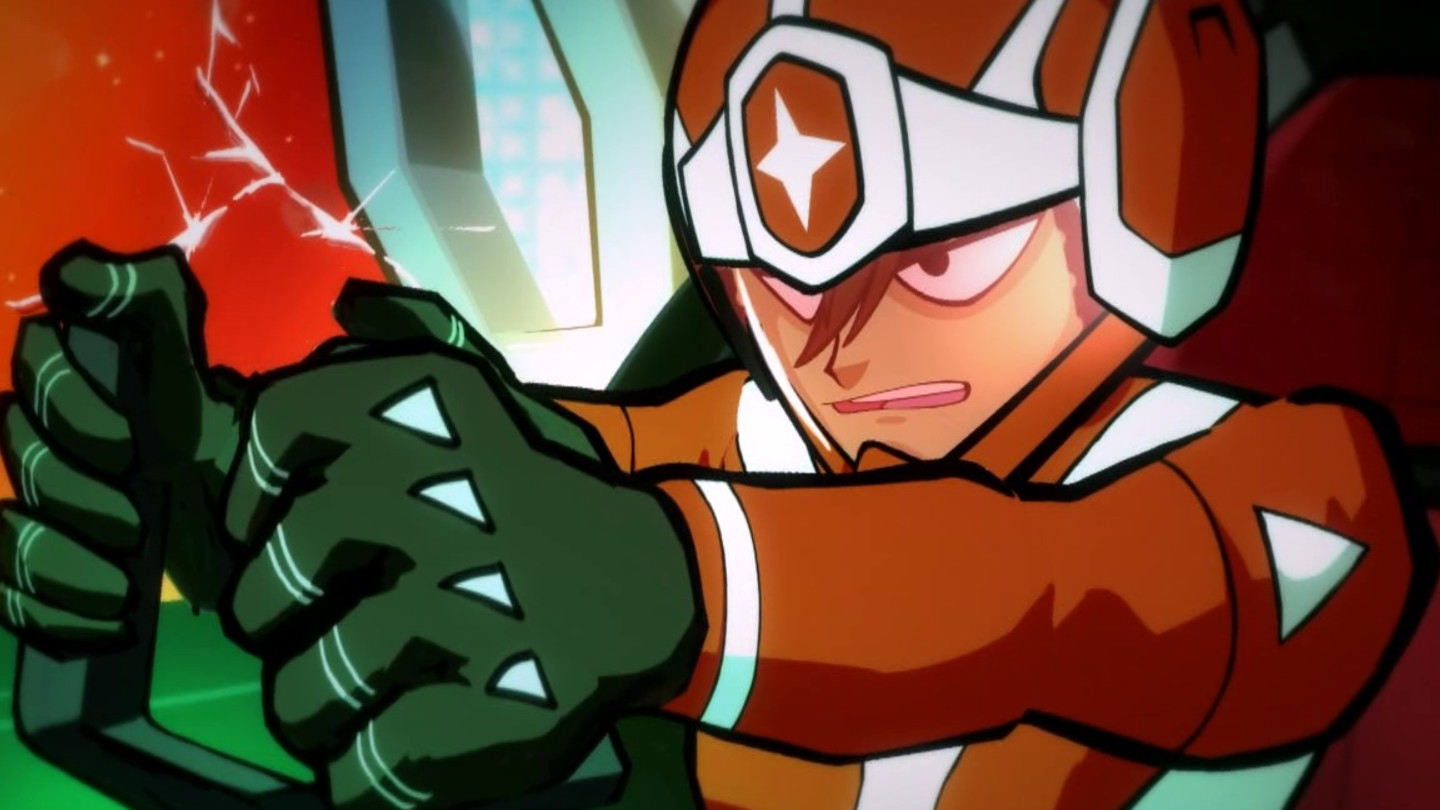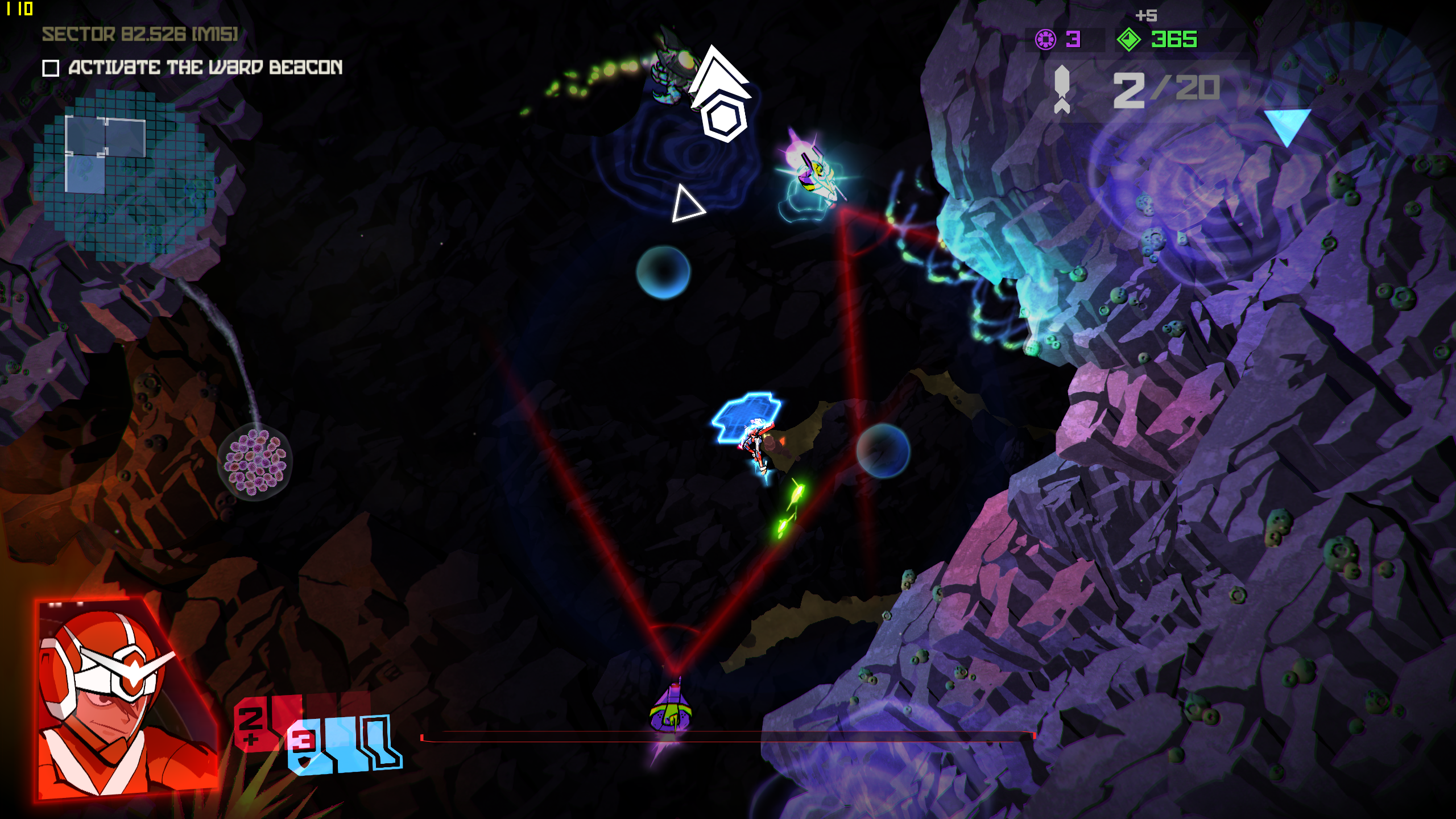2015 Personal Pick — Galak-Z


Along with our group-selected 2015 Game of the Year Awards, each member of the PC Gamer staff has independently chosen one game to commend as one of the year's best.
If the developers of '90s space shooters like R-Type and Gradius had been able to code complex physics and AI, they would’ve made something pretty damn close to Galak-Z. It’s a game I followed for more than a year, hopeful that its focus on physics would set it apart from the many twin stick shooters I’d played before it. It delivered. Galak-Z may look like a twin stick shooter, but you can only shoot straight ahead, and that means positioning is everything.
A great dogfight in Galak-Z is like the most badass viper engagement from the Battlestar Galactica reboot (and not just because the ships look remarkably similar). The vipers use forward and reverse thrusters to flip around in an instant and point their nose at twisting, dodging Cylons, and that’s what it takes to stay alive in Galak-Z. I love the acrobatic dance between firing and dodging using forward, reverse, and side thrusters. A few seconds of sloppy play can wipe you out in a second, but weaving through a cloud of enemy lasers is immensely satisfying. More often I survive by tapping the dodge button in a panic or boosting backwards while firing at the enemy ships hurtling after me.
Even though Galak-Z was designed for consoles, the PC controls are shockingly good, and after a couple hours of play I preferred them to the original. The precision of mouse aim and side thrusters on ‘A’ and ‘D’ help me dodge incoming fire while doling out my own damage. I still don’t feel like I’ve mastered controlling the game, but I’m good enough to flip between the fighter mode and the mech mode on the fly, making use of each set of abilities when I need them most.

Often that means using the mech’s directional shield to absorb an incoming attack, or grapple one enemy and toss them into another for two seconds of breathing room. In one of my proudest moments, I threw a sparking piece of debris into a mech five times my size, taking out its shield, then transformed into the jet and boosted backwards as it charged me, firing lasers and missiles into the irate mech until it exploded. Suck it down.
The quiet moments in between engagements are tense, and it’s satisfying to stealth your way past enemy squads that may be too much to take on (that’s actually a lot of enemy squads, when you’re low on armor or missiles). Galak-Z is a hard game, and having the restraint not to fight is crucial. Death has set me back many times, often when an unseen missile nails me in a minor dogfight 10 minutes into a mission. I do love warping out of a level with one bar of armor left on my ship and my heart in my throat, narrowly escaping an Imperial patrol after distracting them with the squad of hungry space bugs on my tail. Every mission of Galak-Z offers an opportunity to recreate the climax of Serenity, and then run like hell.
I do wish there was more opportunity to heal up to full health during or after a mission. Surviving with one hit point makes winning all the more satisfying, but sometimes I just want to immerse myself in a big, messy brawl with a little bit of a safety net. Galak-Z needs a pure combat mode, if only to give me a playground to better hone my fighting skills. Maybe then I’ll have what it takes to beat the final chapter in an uninterrupted roguelike run.
Keep up to date with the most important stories and the best deals, as picked by the PC Gamer team.

Wes has been covering games and hardware for more than 10 years, first at tech sites like The Wirecutter and Tested before joining the PC Gamer team in 2014. Wes plays a little bit of everything, but he'll always jump at the chance to cover emulation and Japanese games.
When he's not obsessively optimizing and re-optimizing a tangle of conveyor belts in Satisfactory (it's really becoming a problem), he's probably playing a 20-year-old Final Fantasy or some opaque ASCII roguelike. With a focus on writing and editing features, he seeks out personal stories and in-depth histories from the corners of PC gaming and its niche communities. 50% pizza by volume (deep dish, to be specific).

